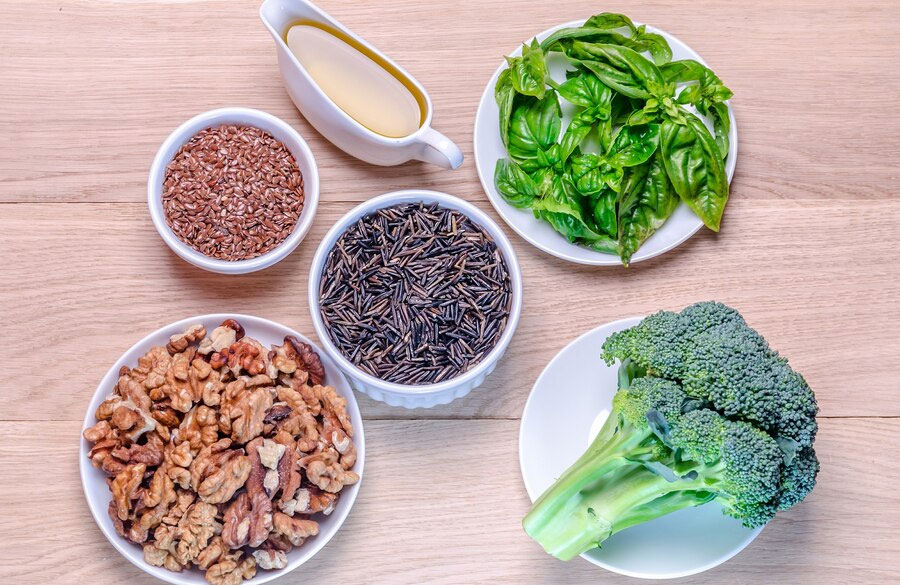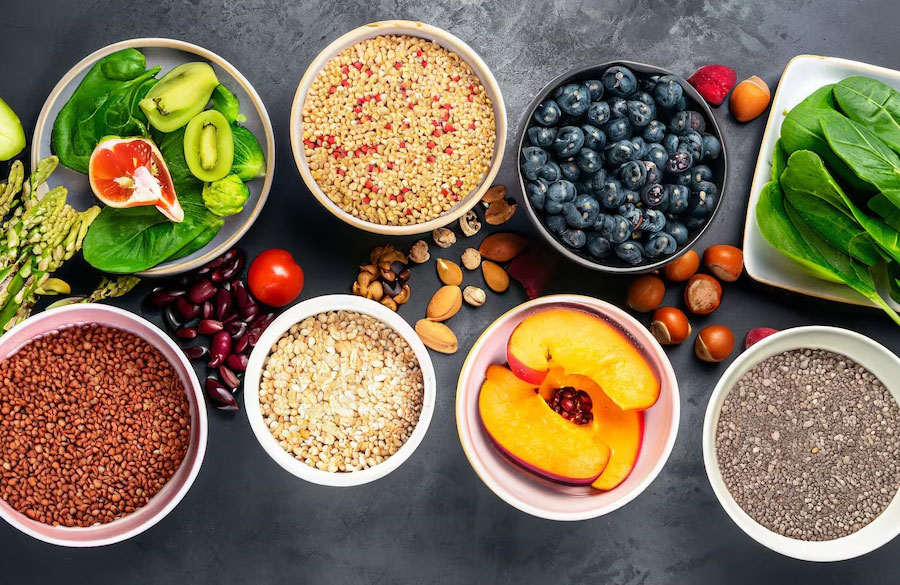
With diseases and illnesses affecting individuals of all ages and socioeconomic backgrounds, we collectively strive to make positive lifestyle and dietary changes as most of these illnesses and diseases trace their steps back to similar root causes– diet and lifestyle. However, we often find ourselves scratching our heads in confusion when the question of having the right kind of diet arises.
Table of Content:-
It is imperative to consider that every individual has different dietary needs and our bodies function differently. However, a recent study by the University of Cambridge has highlighted a major diet game-changer as the ultimate solution to reduce the risk of gut infections.They discovered that turning to a fibre-rich diet can aid in fighting gut infections and thus reduce its risk.
RELATED: What Is Low FODMAP Diet And How Does It Improve Your Gut Health
What Is Dietary Fibre?

The nutrient dietary fibre is a type of carbohydrate. The components of plant meals that the body is unable to absorb or digest are referred to as fibre. Because of this, it differs from other nutrients like proteins, lipids, and other carbs like sugars and starches. These nutrients are broken down and absorbed by the body. Rather, fibre exits the body through the colon, small intestine, and stomach largely undamaged.
How Does A Fibre-Rich Diet Aid In Fighting Gut Infections?
A computational study that looked at the composition of the gut microbiome and analysed more than 12,000 stool samples from 45 different nations highlighted that eating more fibre encourages the growth of good bacteria from the species Faecalibacterium.
According to the aforementioned research that was published this month in Nature Microbiology, the microbiome's makeup may be a predictor of whether or not Enterobacteriaceae are likely to colonise a person's gut. When Enterobacteriaceae are absent, the researchers discovered 135 types of gut bacteria, including Faecalibacterium.
According to the study, increasing the amount of fibre in our diet will promote the growth of beneficial bacteria while suppressing harmful ones, hence lowering our risk of getting infections.
What Did The Research Conclude?
“Our results suggest that what we eat is potentially very important in controlling the likelihood of infection with a range of bacteria, including E.coli and Klebsiella pneumoniae, because this changes our gut environment to make it more hostile to invaders,” said Dr Alexandre Almeida, a researcher at the University of Cambridge’s Department of Veterinary Medicine and senior author of the paper in a press release.
He added, “By eating fibre in foods like vegetables, beans and whole grains, we can provide the raw material for our gut bacteria to produce short chain fatty acids - compounds that can protect us from these pathogenic bugs.”
What Does A Fibre-Rich Diet Include?

- Barley, bulgur, brown rice, and whole-wheat pasta or bread are examples of whole grains.
- Fruits.
- Vegetables.
- Legumes, such as beans and peas.
- Seeds and nuts.
Generally speaking, processed or refined foods have less fibre. The bran, the grain's outer layer, is removed during the grain-refining process. As a result, the grain contains less fibre and other minerals.
What Other Benefits Does A Fibre-Rich Diet Bring To The Table?
According to the Mayo Clinic, fibre might help solidify loose, watery stools– this is because fibre gives stool more volume and absorbs water. A diet rich in fibre may also reduce the likelihood of haemorrhoids, which are enlarged veins in the lower rectum and anus. Additionally, diverticulitis, a disorder with tiny, inflammatory pouches in the colon wall, may also be prevented by eating a lot of fibre.
Adding to the aforementioned benefits, a diet high in fibre is also associated with a decreased risk of colorectal cancer. Lastly, fibre may also help lower blood sugar levels in diabetics by slowing the absorption of sugar.
Also watch this video
How we keep this article up to date:
We work with experts and keep a close eye on the latest in health and wellness. Whenever there is a new research or helpful information, we update our articles with accurate and useful advice.
Current Version